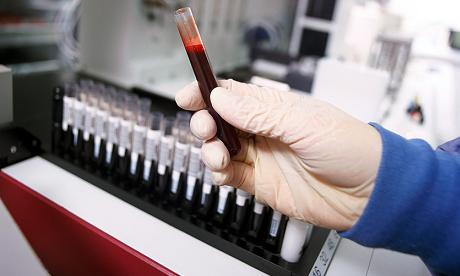Liver Failure
The liver serves approximately 500 unique functions for the body. The liver is a truly vital organ, and there is currently no way for medicine or machine to replicate liver functioning in the long term. One should get frequent blood tests to test for liver functioning. Many diseases of the liver initially have very few outward symptoms. It is crucial to detect these diseases early, because as the disease progresses the likelihood of being able to preserve liver functioning decreases.
Common blood tests for liver failure measure the levels of proteins, enzymes, and waste products in the blood. The test is used to see if the liver is producing proteins and filtering out waste products. Liver blood tests are especially important for those with hepatitis B or C or those who drink alcohol on a regular basis. These are risks for liver failure.
Kidney Disease
A blood test is always required when there is concern about kidney functioning. The kidneys perform several major roles in maintaining the health of the body. The kidneys help to detoxify the body by removing waste products and by maintaining the balance of fluids, salts, and minerals in the body. Through this balance, the kidneys are also responsible for helping to regulate blood pressure.
If there is a problem with kidney functioning, then waste products can build up in the body. This, along with the imbalance of minerals in the body, can have fatal consequences if not detected early enough.
Luckily, kidney dysfunction can be easily detected with a kidney functioning blood test that measures levels of the waste products urea, nitrogen, and creatinine. High levels of any of these waste products in the blood would indicate that the kidneys are not functioning properly. Signs of problems with kidney functioning include swelling of the ankles, vomiting, weakness, fatigue, and shortness of breath. If these occur a kidney blood test should be done immediately – if left untreated kidney functioning problems can lead to total kidney failure.
Thyroid Disease
The thyroid gland controls the metabolic processes in the body. Hyperthyroidism and overactive metabolic system, and hypothyroidism, and underactive metabolic system are the result of an abnormal production of thyroid hormones. Some of the most noticeable side effects of hyperthyroidism are weight loss and anxiety. The most common side effects of hypothyroidism are weight gain and depression.
If thyroid disease is detected early on, it can usually be managed with medications and is not life threatening. However, if left untreated for too long it can lead to myxedema coma, which requires immediate and intensive hormone treatment. Also, thyroid hormone production is especially important in early body development. An abnormally functioning thyroid can cause mental retardation and stunted growth in babies. Thyroid blood tests for women who are pregnant and for babies when they are born is now common practice.
Heart Disease
The heart is the center of the circulatory system and pumps blood to all parts of the body. If left untreated, heart disease and other heart problems can have serious negative effects on overall health and can even result in death. Fortunately, when heart problems are detected, they can often be treated with medications or even by simply making healthier lifestyle choices.
A blood test can help to determine how well the heart is functioning. Common blood tests for heart disease gauge the level of cholesterol in the body. In coronary artery disease, cholesterol plaques start to block the arteries in the heart. A complete blockage of the artery causes a heart attack.
Diabetes
Both Type 1 and Type 2 diabetes can be tested for and monitored by blood tests. Type 1 diabetes is normally first seen in childhood and is caused by a lack in the body’s ability to produce insulin. The body uses insulin to move glucose from the blood in to the tissue cells, where it can be used as energy for cell functioning. In Type 2 diabetes the body is able to produce insulin, but either cannot produce enough or produces too many insulin-blocking cells that obstruct the insulin from entering the cells.
If insulin is not being produced or is being blocked from entering the cells, then a blood test would reveal levels of glucose in the blood to be very high. When diabetes is detected early the symptoms can be managed with medicine and diet changes. However, if diabetes is not managed appropriately, it can lead to severe medical problems such as heart disease and kidney failure.

